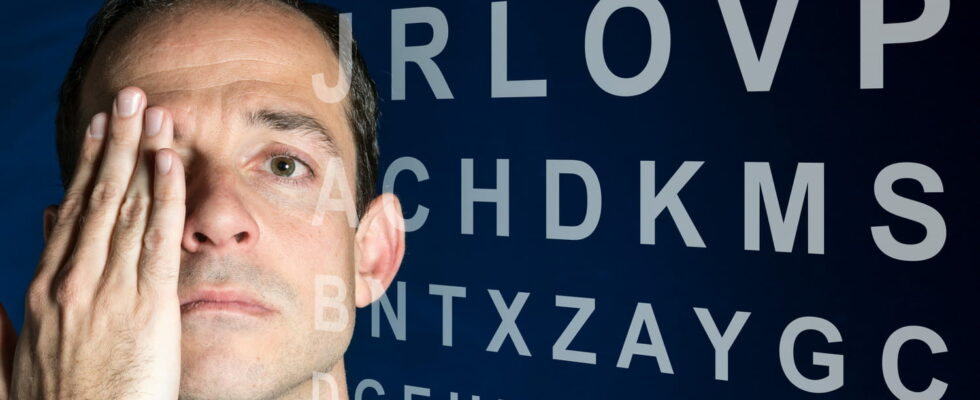The delays in obtaining an appointment with an ophthalmologist can be very long.
Lack of space, long delays, need for a quick appointment… Do you need to consult an ophthalmologist to check your vision, but you can’t find one? It is possible to consult other health professionals.
Since January 31, 2023, it is possible to make an appointment with an orthoptist for a visual assessment if you are between 16 and 42 years old. The orthoptist is therefore the first health professional to consult if you cannot find an ophthalmologist. “Initially, the orthoptist is the specialist in the rehabilitation of the oculomotor muscles. explains Dr Cati Albou-Ganem, ophthalmic surgeon. It’s a sort of eye physiotherapist. His profession quickly established itself in hospitals to practice the examination of refraction, which concerns the eye and sight. Over the years, the orthoptist has become the ophthalmologist’s technician. In ophthalmology, imaging is very present and essential. However, thanks to his years of study, the orthoptist is perfectly capable of carrying out visual examinations, such as fundus examination, retinal photography, measuring eye pressure, etc. He has knowledge in medical ophthalmology.
The orthoptist can work alone, privately or in collaboration with other ophthalmologists, in an ophthalmology practice. The orthoptist transmits the results of the examinations to the ophthalmologist, who will complete the assessment and then establish the diagnosis. Subsequently, follow-up appointments can be made directly with the orthoptist. “However, only an ophthalmologist has the right to write a medical prescription, even if prescription rights are starting to evolve.informs us Dr. Cati Albou-Ganem. This makes it possible to reduce appointment times. The orthoptist allows the doctor to only do medical work: thanks to a visual of all the results, the ophthalmologist has control work. He can take the time to give explanations to the patient, confirm the diagnosis and prescribe treatment. The orthoptist frees up precious time that the doctor uses to do pure medical work..”
To monitor your eyesight, you can also go directly to the optician (the ophthalmologist’s prescription is valid for 2 years). The optician knows how to examine the refraction of the eye and measure visual acuity. This is the right contact if you want to renew your glasses without going to the ophthalmologist. The difference between the optician and the orthoptist is that the latter has a longer level of studies, allowing him to have access to examinations other than vision, more focused on medical ophthalmology (but he cannot not sell glasses). “Neither has the right to touch the patient’s eyes, recalls Dr. Cati Albou-Ganem. They can take certain measurements using “No-Touch” devices which are used to carry out examinations remotely, without contact with the patient.“The optometrist remains.”It checks vision and visual acuity. It is often present in optical stores and more and more frequently in ophthalmologists’ offices..”
The appointment for a classic visual assessment can be made 6 months in advance. You have the opportunity to block a slot directly when leaving the ophthalmologist or on online appointment platforms. “Generally, a control assessment is carried out before entering CP and recommended before entering University. From the age of 30, an ophthalmological check-up is recommended especially in the event of problems, except for adults and children who wear glasses, for whom annual follow-up is essential. From the age of 40, we recommend a consultation every 12 to 18 months, as this is the average age from which presbyopia can begin to develop.“
The annual vision check is important, because in addition to visual acuity, other eye pathologies lead to potential vision changes at an advanced stage. This is the case, for example, with glaucoma or venous ocular occlusion, which can impair the visual field. In the event of severe pain, sudden loss of vision or sudden vision disturbance, you call your ophthalmologist’s office, who most often keeps places for emergencies, or you go to the emergency department of a hospital center.
Thanks to Doctor Cati Albou-Ganem, ophthalmic surgeon, president and founder of SoFem (Women’s Ophthalmological Society).
